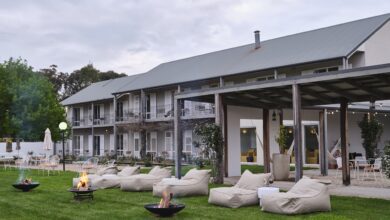
Regulating the growth of ‘quasi-hotels’
Bankwest Curtin Economics Centre’s report on ‘The Impact of Airbnb on WA’s Tourism Industry’ released last week shows that the shared economy is not ‘shared’ – with 61 percent of listings being for entire homes or apartments and only 37 percent accounting for private rooms within a house.
The report has highlighted the need for Western Australian State and Local Governments to take action to regulate the growth of ‘quasi-hotels’.
Australian Hotels Association WA CEO, Bradley Woods, said clear and transparent policies are required for all commercial short-stay accommodation providers.
[pro_ad_display_adzone id=”15046″ align=”left”]“They need to comply with the same rules and local government regulations that licensed legal accommodation hotels and serviced apartments have to comply with,” said Mr Woods.
“The report also highlights the need for Airbnb to co-operate and contribute data to the assessment of their share of accommodation provided to tourists and visitors to WA so that industry and government has a clear understanding of the sharing accommodation industry.
“The Western Australian Government has an opportunity to lead with fairer regulation of commercial accommodation and develop a model that allows for legal Airbnb operators to exist alongside hotels and serviced apartments.
“Planning guidelines should be developed for local government authorities to manage the sector whilst still delivering results for tourism, the economy and job creation,” said Mr Woods.

AccomNews is not affiliated with any government agency, body or political party. We are an independently owned, family-operated magazine.








Totally agree, there’s lots of AirBnB places in this area where I live, otherwise empty houses that would otherwise be available for rent, but these properties are being kept vacant in the hope of letting them to short-term (1 or 3 nights) to visitors/tourists, self-catering, but are they up to scratch?
Do these owners have to get the same approvals as me? Are we on a level playing field, i.e., do they declare the income and pay tax like other B&Bs?
My own daughter prefers AirBnB so what do I do with my luxury property when I hear her saying this? I’m hearing that these properties “are busy” and my 4.5 Star Rated “Traditional Hosted Accommodation Suite” is is struggling. Maybe those staying in AirBnB are looking for cheap accommodation, I guess they get what they pay for!
So true Shirley – the top end is being hit massively in your area by the influx of airbnb and stays properties – that don’t pay Commercial Council rates and don’t support the Council’s Visitor Information Centre.
This incredible growth in number and popularity has caught Councils across the country off guard – and rather than work with the sector they are just looking to regulate without consulting first
Should not the same be required of Stayz/Homeaway?
Absolutely, everyone renting short term to tourists should abide by the same regulations, permits and fees. Including correct insurances, paying GST and tax, council registration, health inspections etc etc etc
Single unit accommodation – eg a stand alone house – is NOT classed as “commercial residential premises” under GST legislation and is exempt from paying (or claiming) GST – the product is Input Taxed.
Who is going to draw “the line in the sand” to distinguish between residential accommodation and commercial accommodation – eg what is the differencwe between a house let on airbnb (or one of the thousands of other sites) and realestate.com.au.
The “line in the sand” should be a lease and the length of stay. Less than 30 days is short term accommodation and should be regulated as such. Over 30 days should have a lease in place and comes under the tenancy rental agreement, as opposed to the Prescribed Accommodation Act for short term tourist rentals.
The Regulations under the Victorian Health and Wellbeing Act re Prescribed Accommodation do not apply to “a house under the exclusive occupation of
the occupier” so where a house or flat or unit is let through a site such as airBNB and the premises are only occupied by one guest group at a time then that Act would not apply. It is only set up to cover “in house” BnB or multi unit accommodation – not single stand alone sole occupancy units (aka a normal house)
Definitely – it has to apply to all – but the issue is defining what is an all encompassing description of the “beast” the Councils are trying to control – when does a normal house change to being a “airbnb’ and subject to a set of regulations?